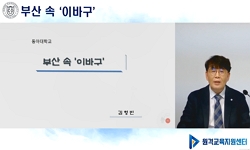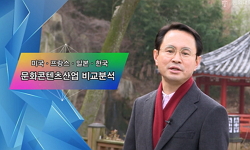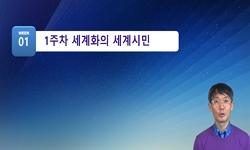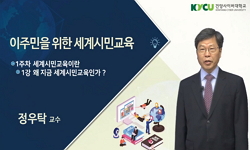이 연구는 2019년 7월 부산시가 발표한 『부산문화 2030비전과 전략』을 분석함으로써 그것의 가능성과 한계를 도출하고, 부산문화정책이 담아야 하는 기본원리를 제언하는 데 목적이 있다. ...
http://chineseinput.net/에서 pinyin(병음)방식으로 중국어를 변환할 수 있습니다.
변환된 중국어를 복사하여 사용하시면 됩니다.
- 中文 을 입력하시려면 zhongwen을 입력하시고 space를누르시면됩니다.
- 北京 을 입력하시려면 beijing을 입력하시고 space를 누르시면 됩니다.

『부산문화 2030비전과 전략』의 가능성과 한계 - infra 비전을 넘어 문화적 시민사회 비전으로 - = Possibilities and Limitations of Busan Culture 2030 Vision and Strategy-From Vision of Infrastructures to That of Cultural Civil Societies-
한글로보기https://www.riss.kr/link?id=A107038148
- 저자
- 발행기관
- 학술지명
- 권호사항
-
발행연도
2020
-
작성언어
-
-
주제어
부산 ; 부산문화 ; 부산성 ; 문화정책 ; 시민 ; 문화적 시민사회 ; Busan ; Busan Culture ; Busanness ; Cultural Policy ; Citizen ; Cultural Civil Society
-
등재정보
KCI등재
-
자료형태
학술저널
-
수록면
481-517(37쪽)
- DOI식별코드
- 제공처
- 소장기관
-
0
상세조회 -
0
다운로드
부가정보
국문 초록 (Abstract)
이 연구는 2019년 7월 부산시가 발표한 『부산문화 2030비전과 전략』을 분석함으로써 그것의 가능성과 한계를 도출하고, 부산문화정책이 담아야 하는 기본원리를 제언하는 데 목적이 있다. 이를 위해 우선 참여정부에서부터 현 문재인 정부에 이르는 각 정부의 문화개념과 문화정책을 살펴봄으로써 국가 권력기관인 정부의 문화개념이 국가의 미래를 어떻게 좌우하는가를 비판적으로 검토한다. 이는 지역문화정책으로서의 『부산문화 2030비전과 전략』이 어떠한 문화개념을 바탕으로 구성된 정책인가는 물론, 부산의 미래를 어떤 방식으로 그려내는가를 밝히는 토대가 된다.
문화정책이 인간 삶을 위한 가장 긴급한 정책임을 표방한 참여정부를 부정하면서, 창조적 실용주의와 창조경제의 논리에 따라 문화정책을 자본축적의 도구로 삼은 이명박ㆍ박근혜 정부의 지난 10년간의 문화정책은 온 국민의 삶을 반문화적 시대로 옮겨놓았다. 이에 맞서 현 정부는 문화=자본으로 공식화된 그간의 한국적 문화개념을 문제시하며 사람이 있는 문화를 지향, 삶으로서의 문화이자 문화로서의 삶을 향한 혁신적 전환을 가능케 하는 문화정책을 내놓았다. 그러나 문제는 기존문화정책과 현 시정에서 벗어나 부산만의 문화정책을 기획하며 탄생했다고 자평하는 『부산문화 2030비전과 전략』이 오히려 실패한 창조적 실용주의와 창조경제의 논리를 답습하고 있다는 것이다. 어바니즘ㆍ전시행정ㆍ기념비주의에 매료된 부산시정부와 인프라확충을 문화로 인식하는 부산시민 사이에서 탄생한 『부산문화 2030비전과 전략』은 문화정책과 예술정책이, 도시정책과 문화정책이 혼재한 괴이한 정책이라는 한계를 지닌다. 지역으로서의 부산, 부산성은 차치한 채 스펙터클 한 거대 해양도시부산을 꿈꾸는 『부산문화 2030비전과 전략』은 부산시민은 없고 예술가만 남는, 부산시민은 없고 해양도시부산만 남는 미학화한 도시의 미래상을 담고 있다.
이러한 비판적 분석을 근거로 본 연구는 지역문화정책의 역할은 지역-사회와 지역-시민의 존립을 위한 문화적 토대를 구축하는 데 있으며, 문화적 토대란 교환가치로서 작용할 문화적 인프라의 구축이 아닌 사용가치를 발휘할 문화와 그 생산을 위한 시민주체 형성에 있다는 주장을 펼친다. 아울러 지역문화정책은 지역예술(인)의 활성화 및 문화적 인프라의 건립이라는 강박을 넘어 부산시민이 처해 있는 노동시간, 최저임금, 기본소득 등과 같은 현실 문제를 진단ㆍ고려함으로써 시민의 문화적 권리를 지향하는 데로 나아가야 하며 이로써 내일의 문화적 시민사회를 여는 동력이 되어야 함을 제언한다.
다국어 초록 (Multilingual Abstract)
Analyzing Busan Culture 2030 Vision and Strategy, the paper aims to draw out its limitations and possibilities, and to suggest basic principles that the cultural policy of Busan should contain. To this end, this work first examines the cultural concep...
Analyzing Busan Culture 2030 Vision and Strategy, the paper aims to draw out its limitations and possibilities, and to suggest basic principles that the cultural policy of Busan should contain. To this end, this work first examines the cultural concepts and policies of each government, from the Roh Moo-hyun administration to the current Moon Jae-in administration. This helps to find possible solutions to the following fundamental questions: ‘what concept of culture does Busan Culture 2030 Vision and Strategy as a local cultural policy rest on, and how does it picture the future of Busan?’ Born between Busan Metropolitan Government fascinated by urbanism, exhibition administration and monumentalism, and Busan citizens recognizing the expansion of infrastructure as a culture, Busan Culture 2030 Vision and Strategy has, in fact, limitations as a peculiar mixture of cultural and artistic policies, and urban and cultural policies. Disregarding Busan’s localities, or Busanness so to speak, Busan Culture 2030 vision and strategy, which explicitly expresses its dream of Busan as a spectacular marine giant, contains the city’s aestheticized future in which there are not Busan citizens but only artists and a marine city.
Based on this critical analysis, the study argues that the role of local cultural policy lies in establishing a cultural foundation for the survival oflocal communities and local citizens, and that the cultural foundation is not the construction of cultural infrastructure to act as exchange value, but rather in a culture that will exercise use value and form a civic entity for the production of culture. In addition, it suggests that local cultural policies should go beyond the urge of revitalizing local arts and constructing cultural infrastructure to diagnose and consider real issues such as working hours, minimum wage, and basic income with which Busan citizens are confronted, and thus those which become the driving force for tomorrow’s cultural civil society.
동일학술지(권/호) 다른 논문
-
1980년대 정부의 일본TV방송 전파월경 대책과 부산사회의 반응
- 부산광역시사편찬위원회
- 윤상길
- 2020
- KCI등재
-
부마민주항쟁의 역사적 의의- ‘4·19의 길’과 ‘5·16의 길’ 사이에서 -
- 부산광역시사편찬위원회
- 차성환
- 2020
- KCI등재
-
- 부산광역시사편찬위원회
- 임영현
- 2020
- KCI등재
-
- 부산광역시사편찬위원회
- 우양호
- 2020
- KCI등재





 KISS
KISS







